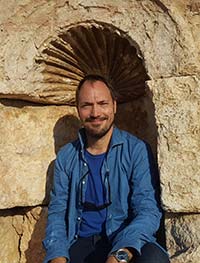Global Mental Health Summer Institute

Program Description:
The Summer Institute in Global Mental Health (GMH) is a 6-day training program in the Group Interpersonal Psychotherapy, and the World Health Organization (WHO) Mental Health Gap (mhGap) Humanitarian Intervention Guide (HIG). This training is designed for mental health and allied specialists, non-specialists, and students working with populations exposed to severe adversities and trauma.
Through a combination of hands-on training, didactic presentations, case studies, live demonstrations, and experiential exercises, trainees will gain knowledge on four essential mental health care elements:
WHO Mental Health Gap Humanitarian Intervention Guide (mhGap-HIG)
The mhGAP-HIG provides non-specialists with first-line assessment and management recommendations in the face of humanitarian emergencies where treatment options are limited. It covers acute stress, grief, depression, post-traumatic stress disorder, psychosis, epilepsy, harmful substance use and risk of suicide.
Group Interpersonal Psychotherapy (IPT Group) & Additional Modules
IPT is an evidence-based treatment widely used for adolescents and adults struggling to adapt in the aftermath of adversity. IPT has been tested for feasibility, acceptability, effectiveness, and sustainability in a number of landmark randomized controlled trials. Both the WHO mhGAP and UNHCR guidelines recommend the manual as an effective first line of treatment for depression delivered by non-mental health specialists in low- and middle-income countries. On the World Mental Health Day (October 10th, 2016), the WHO launched a global dissemination of the Group IPT Manual. This document will serve as the guide for the current training.
Family Engagement Strategies
Family support during episodes of mental illness is critical for recovery. In many regions the stigma of mental illness results in withdrawal of family support during episodes, when the person needs it most. We will train on family engagement strategies, which families have found helpful in our work around the globe.
Management of Suicide Risk
Risk assessment and evidence-based brief psychosocial interventions to mitigate suicidal risk in emergency settings will be covered, with an emphasis on the Safety Planning Intervention (SPI). SPI is an evidence-based, stand-alone intervention that has its roots in a brief cognitive therapy (CT). It is designed to manage and mitigate the risk for suicide, especially in acute care settings, such as trauma centers, crisis hotlines, psychiatric inpatient units and emergency departments.
Group IPT training is provided by:
- Helen (Lena) Verdeli, Ph.D., M.Sc.
- Kathleen (Kathy) F. Clougherty, L.C.S.W.
WHO mhGap Humanitarian Intervention Guide training is provided by:
- Peter Ventevogel, M.D., Ph.D.
- Fuad El Musa, M.D.


